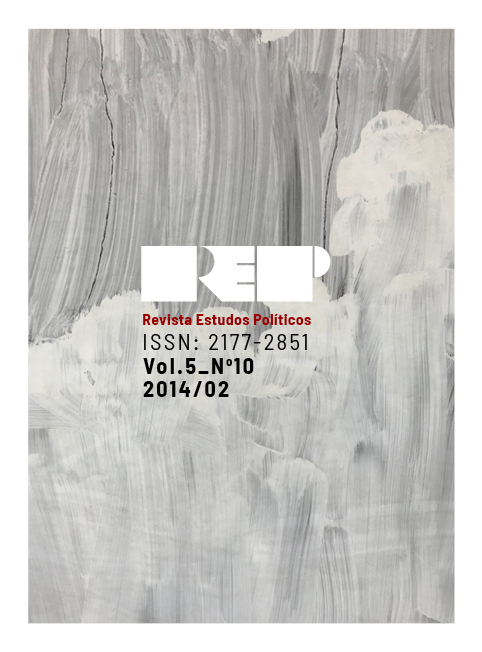The “Political Testament” of Gaspar Silveira Martins: A Reaction against the Castilhos-Borges Republic
DOI:
https://doi.org/10.22409/rep.v5i10.40378Palavras-chave:
Republic, Federalism, CentralismResumo
In 1889, the proclamation of the republic in Brazil led to formal changes in the political organization of the country. Republican federalism replaced monarchical centralism, and gave prominence to the groups that held economic power in the States. The policies of the governors and States began to be formulated during the presidency of Campos Sales and strengthened the alliance between the President of the Republic with the power of the State oligarchies, making the governors strong supporters of the Republic. Thus, rather than being a true federalism, with the democratic backing of a plural political system, it became a displaced federalism, — that is a type of “Statism” based on the power of the state oligarchies. As a counterpart to this concept of the Republic, (and this is the central issue of this paper) a number of political voices were raised demanding that the federal government should wield a greater degree of power over the states. Among these, attention should be drawn to the role of the Federalist Party (1892-1928), a political party founded by the liberal Gaspar Silveira Martins from Rio Grande do Sul State, who insisted on backing unitary federalism as a form of reaction to the “undermining “ of the central government by the States. This paper seeks to highlight the centralist features embodied in the federalist program. These involve conducting an analysis of the “Political Testament” left as the legacy of the liberal magistrate in 1901, which was an important theoretical critique of the dominant ideology in Rio Grande do Sul of the First Republic — the concept of “Castilhism”, and the model of the republic that prevailed at a national level at that time. We also seek to analyze how the question of federal interventionism, that was put forward by Gaspar Martins in his “Testament”, was a driving-force behind the parliamentary speeches produced in that era, and influenced the activities of the main representatives of the federalist opposition.Downloads
Downloads
Publicado
Edição
Seção
Licença
Para submeter um manuscrito, os autores devem realizar o cadastro na plataforma, fornecer os dados solicitados e seguir as orientações recomendadas. Para tanto, será necessário apresentar o número da identidade de pesquisador. Para obtê-lo, é necessário realizar o cadastro na plataforma Open Researcher and Contributor ID (ORCID).
Ao submeter um manuscrito, os autores declaram sua propriedade intelectual sobre o texto e se comprometem com todas as práticas legais relativas à autoria. A submissão implica, ainda, na autorização plena, irrevogável e gratuita de sua publicação na REP, a qual se responsabiliza pela menção da autoria.
A REP tem acesso aberto e não cobra pelo acesso aos artigos.
Orientando-se pelo princípio de que tornar público e disponibilizar gratuitamente o conhecimento científico contribui para a democratização mundial do conhecimento, a REP adota a política de acesso livre e imediato ao seu conteúdo.
No mesmo sentido, a REP utiliza a licença CC-BY, Creative Commons, a qual autoriza que terceiros distribuam, remixem, adaptem e criem a partir do trabalho, inclusive para fins comerciais, desde que se reconheça e torne público o crédito da criação original.
Para mais informações, contatar a editora através do e-mail revistaestudospoliticos@gmail.com


